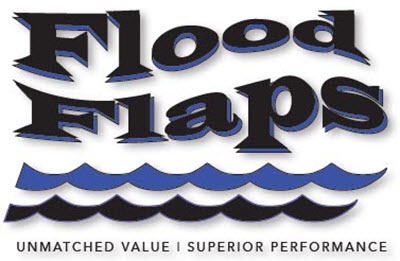Are you covered for hurricane damage?
Despite predictions for relatively few hurricanes this season, it’s still a good idea to assess your financial readiness.
For this year’s Atlantic hurricane season, which runs through Nov. 30, the National Oceanic and Atmospheric Administration has predicted a “below-normal” six to 10 named storms with as many as four of those reaching hurricane status, the agency said. While August is often the peak month, big storms can arrive late in the season.
Hurricane Sandy, which killed more than 70 people and caused at least $50 billion in damage in the U.S., formed in late October of 2012. And the U.S. National Hurricane Center is reporting that Hurricane Joaquin, strengthened into a Category 3 hurricane Thursday morning with winds up to 125 mph, and could turn toward the U.S. East Coast in the coming days.
SEE ALSO:
- Flood Mitigation: FEMA compliant automatic, engineered flood vents |
- Flood Insurance: Lower your flood insurance premiums
As Robert Hartwig, president of the Insurance Information Institute, points out: It only takes one bad storm to derail your wedding, disrupt your vacation or damage your home. Hartwig and the NOAA note that in another “below-normal” season, 1992, the first storm of the year—Andrew—turned into a Category 5 hurricane that remains the second costliest hurricane on record. He warns not to be lulled “into a false sense of security,” especially with about two months left in the season.
Here’s what you can do to prepare.
Homeowners
It’s worth checking for natural disaster gaps in coverage annually, whether you live in an area at risk for hurricanes or for other disasters, such as the flooding in Texas or wildfires in California. One of the most common policy problems: a lack of flood insurance. Most policies cover wind damage from hurricanes and other storms, but water damage from storm surges and floodwaters is typically excluded.
“That’s a separate policy,” said Peter Kochenburger, executive director of the University of Connecticut’s Center for Insurance Law. Coverage can be purchased from the National Flood Insurance Program or several private providers, but you’ll need to have planned ahead — it takes 30 days to go into effect. “You cannot call when a storm is bearing down,” said Hartwig.

It’s also important to make sure you have adequate coverage based on your home’s value and estimated cost to rebuild. You might not, especially if you’ve made improvements; the cost of building materials have increased, said Hartwig. If your coverage is less than 80 percent of the home’s replacement value, many insurers will reimburse you only for a portion of damages.
Check too to see if your homeowner’s policy has a separate deductible for hurricane and windstorm damage, said Kochenburger. It’s often much higher than the deductible for other types of damage, and can amount to 1 to 5 percent of your home’s value. “Do you have something like that and if so, are you comfortable with it?” he said. It may be worth shopping competitors, or stashing a bit more in an emergency fund to bridge that gap.
Travelers
Whether you’re planning a trip to an area that’s vulnerable to hurricanes or your travels could be affected by one (say, a flight layover in Florida), it’s smart to think ahead. Be aware of the change and cancellation policies for different aspects of your trip, and weigh the benefits of travel insurance, said Ed Perkins, a contributing editor for SmarterTravel.com.

When a storm bears down, it’s typical for airlines to offer penalty-free rebooking for affected flights, he said. In other circumstances, that could cost as much as $200 for a domestic flight, depending on the airline. Hotel and resort policies vary widely, with travelers potentially facing lost deposits or the entire cost of their reservation for a last-minute cancellation — although those properties in the path of the storm may offer the chance to rebook or otherwise be more flexible.
If the sudden onset of a storm would leave you with substantial losses or a limited opportunity to rebook the trip, then travel insurance might be a good investment, said Perkins. The same holds true if you want the option to cancel before the storm is bearing down
Terms matter — some policies may kick in only if the hurricane means your flight is canceled or your destination is “uninhabitable,” he said. Look for a cancel-for-any-reason policy, which lets you back out of a trip for pretty much any worry. Costs can range from 4 to 12 percent of the price of your trip, depending on the provider and coverage; sites including InsureMyTrip and Squaremouth make it easy to compare.
Engaged couples
The cost of getting hitched has surged to an all-time high, with the average couple shelling out $31,213 in 2014, according to TheKnot.com. That’s a lot of money on the line if a storm coincides with your big day. In 2013, weather-related issues accounted for 23 percent of wedding insurance claims, according to data from Travelers.
“These bad storms can really throw a wrench into plans,” said a Travelers spokeswoman. That said, risks depend on the storm season. In 2014, one of the more notable claims the company received involved a Virgin Islands hotel that pre-emptively canceled new reservations, forcing an insured couple to find new accommodations for guests.
“Read the policy carefully to see what’s covered, and to what limits,” said Hartwig. Policies may cover lost deposits and extra expenses incurred as a result of a weather-related rescheduling. But again, couples will need to plan ahead — policies often exclude weather-related incidents that happen within two weeks of purchasing a policy.

